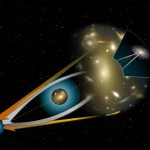detection
You are probably thinking, whose bird-brained idea was that?
Well, as it turns out, a new study published in PLOS ONE shows that pigeons can be trained to accurately differentiate cancerous versus healthy tissue biopsies. This is because the process of diagnosing cancer involves visual screening of MRIs an biopsies and pigeons use similar visual processing as humans. Moreover, according to the article, pigeons are able to learn and memorize over 2000 images, a skill that likely helps in identifying cancerous cells.
In a quote from Scientific American, study author Dr. Richard Levenson (…
“I followed him at the time and thought he was hysterical. He was the first serial killer, a new kettle of fish, because we didn't have the detection techniques in those days.” -Matthew Bright
You can't get mad at a team for trying the improbable, hoping that nature cooperates. Some of the most famous discoveries of all time have come about thanks to nothing more than mere serendipity, and so if we can test something at low-cost with an insanely high reward, we tend to go for it. Believe it or not, that's the mindset that's driving the direct searches for dark matter.
Image credit…
So I've been hanging out at the Indirect and Direct Detection of Dark Matter conference this week, and been struck by several things.
It is a good meeting, enthusiastic crowd, definite excitement in the air.
It would have read much better if the title had been "Direct and Indirect Detection of Dark Matter", but that would have been wrong...
This is not my usual turf, though I was on a couple of papers on the adiabatic contraction of collisionless matter during growth of supermassive black holes, which is a way to get very high dark matter densities (QHS95 and SHQ95).
Basically a "spike" in…
Remember how I told you earlier this week that DAMA was going to announce that they found dark matter, even though the signal that they found is not consistent with other experiments?
Looks like my powers of predicting the future are pretty damned good. They have a new plot with more data showing the continued modulation at a certain energy range:
and also one showing the fact that they see a bunch of extra events happening in that energy range:
So here's the stuff that DAMA has seen: a nuclear recoil that has many events in a certain energy range, and has a 2% annual modulation in that…
The DAMA collaboration, an experimental team searching for dark matter via direct detection, is poised to report this week that they have discovered Dark Matter. And I'm here to pre-empt that by bringing you the truth: no, they haven't.
They take some very cold (cryogenic) atoms,
look for nuclear recoils resulting from dark matter collisions, subtract the background, and draw conclusions based on whatever's left over. Their expectations are based on the following:
Neutrons, neutrinos, and other standard model particles from the Earth, the Sun, and the Milky Way galaxy will collide with the…


